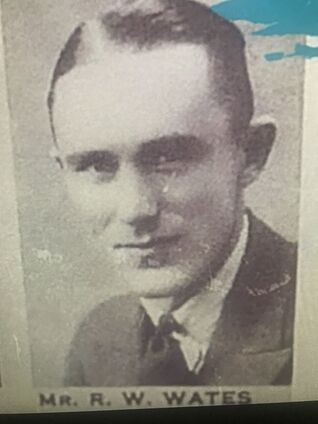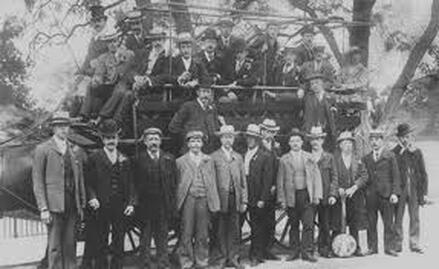
Ronald Wates married Phyllis Trace of Woodbourne Avenue on 19 September 1931 at St Leonard's Church Streatham.
Full article by John Moreton below:
-------------------------------------------------------
Wates, Sir Ronald Wallace (1907–1986), builder and benefactor, was born at 87 Mitcham Lane, Streatham, London, on 4 June 1907, the second child in the family of three sons and one daughter of Edward Wates, builder, and his wife, Sarah Holmes. He was educated at Emanuel School, Wandsworth, to which he remained affectionately loyal, becoming a governor and generous benefactor. Leaving school at sixteen, he worked in an estate agency and qualified as a surveyor in 1928 (he later became a fellow of the Royal Institute of Chartered Surveyors) before joining the family building firm, of which he became a director in 1931. That year he married his childhood friend, Phyllis Mary, daughter of Harry Trace, innkeeper; they had four sons. Founded jointly by Wates's father, Edward, early in the twentieth century, by the 1920s the family firm was well placed to take advantage of the suburban growth in south London between the wars. A good range of well-built houses was offered, and output rose to 2000 a year.

During the Second World War, Wates carried out much high-priority work and a significant development in the firm was the successful fulfilment of a major wartime contract for sections of Mulberry harbour, made for the 1944 Normandy landings. In the post-war years the firm's reputation grew as its activities widened, extending to contract housing, tower blocks, City redevelopment, and other large-scale construction projects. Wates's contribution lay in his keen eye for a valuable site and, increasingly, his City contacts. In 1969 Wates unexpectedly took over as chairman when his brother Norman died suddenly. It was not an easy time. In a family firm, there was little career structure; the next generation, with new ideas, was waiting in the wings, but not yet deemed ready. Subordinating his other interests, Wates held the fort solidly until 1973, when Norman's eldest son, Neil Wates, took over as chairman and he became president.
Wates's influence and interests had been growing steadily. A lifelong Conservative, he was a member of Wandsworth borough council (1937–46) and London county council(1949–52). He was made a freeman of the City of London in 1945 and a JP for inner London in 1947. He acquired the art of public speaking and was a good raconteur. He became master of the Worshipful Company of Innholders (1978–9), was a fellow of the Institute of Building, and a governor of the Brixton School of Building; he also gave his time to many other activities in support of the industry. He was for many years chairman of the Royal School for the Blind, Leatherhead (1971–82); a council member of King's College Hospital medical school; a trustee of the Historic Churches Preservation Trust; and a member of the church commissioners' committee on redundant churches. In 1966 he and his two brothers established from their personal resources the Wates Foundation, dedicated to improving the quality of life, especially for the disadvantaged young. By 1990 its annual income was £1.3 million.
Wates died of a cerebral thrombosis in Ashtead Hospital on 25 January 1986. Following cremation, his ashes were buried at Headley parish church. The value of his will, before inheritance tax, was £3,200,575.
